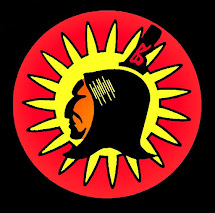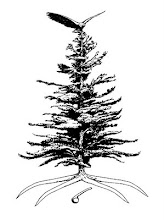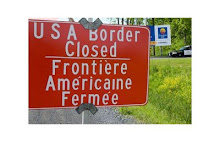Friday, March 6, 2009
We Want Half
Up till now most of the battles over the tobacco business on Native lands have been with the states. By and large most of those fighting for the right of Native people to carve out a market share of an industry with its origins in their own history and culture have looked the other way when it came to challenging the Feds. For over thirty years the federal excise tax has been paid with very little resistance. Up till recently, almost all the the products sold on Native land were produced by US manufacturers or imported by US distributors. Now Native brands have grabbed some major market share, at least on reservation sales. What once was just retail of established brands has become manufacturing, importing, wholesaling, marketing and retail that ranges from brick and mortar stores to e-commerce. For the Feds part they have quietly collected excise tax on the products before the product could leave their factories or customs agents and have played the spectator in the battle between the states and the Native people. With Native entrepreneurs becoming manufacturers and importers they found themselves in the awkward position of paying the federal taxes themselves directly. Some of the manufacturers dabbled with the sovereignty position and opposed the ATF regulations that called for the excise tax, but at $3.90 a carton, paying the tax was better for the overall business. Now in a the new era of unprecedented federal maneuvering, the excise tax has been raise to $10.00 per carton. To this the communities must tell the Feds, "Fine! But we want half". Communities that have product manufactured or exclusively imported for Native sales should have the option of having half, or $5.00 per carton, put into their own coffers. The feds will still see a significant increase from $3.90 on Native products and a dramatic increase on their domestic product sold by Native retailers. This process would allow much needed revenue for Native communities without placing higher tax burdens on Native products. As far as the Feds are concerned the $10.00 would be paid across the board on all cigarettes, but on Native products half would stay where it is needed most.
Subscribe to:
Post Comments (Atom)













![-[]-[]-/\-[]-[]-](https://blogger.googleusercontent.com/img/b/R29vZ2xl/AVvXsEjLoXmKO8PJVQ5pZ2q7GX7nFKw8H2tb28dxt-o10FUBNtOGszWhWoLB7tgjtMgtISpuSxNW3fcDxfuSS2DqojsdjNJ1lVggyUS374PnzsDbOhk4ukvtTunFQcyfkckZeBzcLbri4LDYN_E/s214/29-03-A-voice-from-the-Akw-.jpg)





2 comments:
Ndns are the biggest chickens on the planet.Fact! They would rather sit like a dog tuk tailed and run with the feeling of defeat than to fight! Truth! These so called white immigrants who come to pilage rape and burn now do it in an even m,ore slick manner! The worse part of it all is that it is acceptable ! Seems hopeless to even let them know while the certain few are out there fighting do night ops this is getting to be bullshit ? wake da truk up yous real people put your crack pipes down and your drugs away and get to grips on reality if not stay with the captain and go down with him and his ship.
Regarding tobacco the Seneca Nation has done everything but sign a tax compact in its attempt to fall in line with the system of New York State. The SNI has a complex, bureaucratic and heavy handed regulatory system for its tobacco industry that includes cigarette police(complete with badges), stamps, a tax, minimum pricing(at retail and wholesale levels)and the claimed authority to dictate who can and cannot be in business. SNI agents have siezed product, worked sting operations with the ATF and collected tens of millions of dollars from their retailers, wholesalers and manufacturers. Having said all of this, if the SNI isn't willing to negotiate revenue sharing from the federal government in light of this significant increase in their imposed tax burden then they should stop playing the "look how much we can be like you" game and scrap their tobacco regulations all together. Native people would love to finally see their governments step up and create a process where the people could pay their own Nations rather than the US. Tribal taxes shouldn't be added on top of being fleeced by the federal government. This should be considered for income tax as well. I certainly would rather pay a income tax to the Nation I reside in than the US.
Post a Comment